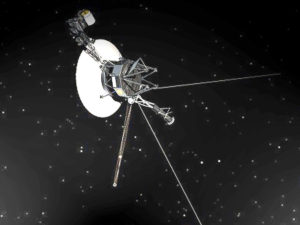
By Paul Kincaid
It isn’t the job of the Shadow Clarke Award jury to predict what the actual jury will decide. I’ve played that game. Eleven times I chaired the Clarke Award shortlist meeting. Eleven times, privy to what the jurors were thinking, I assumed I knew what would be on the shortlist at the end of the day. Eleven times I was wrong. There is something inherently, intrinsically unpredictable about the Clarke Award shortlist.
Nor is it our job to say what should be on the shortlist. (Except that my taste is, of course, impeccable; so pay attention!)
Rather, our job is to consider what might, maybe, could, perhaps catch the eye of the jury. To cast about for the books that are good, yes, and innovative, challenging, interesting; collectively, to lay out the context from which the actual shortlist will arise.
Bearing all of that in mind, there are books I could easily and happily see making the final shortlist (by Don DeLillo, Matt Hill, Lavie Tidhar, perhaps) that don’t actually feature on my own list. Instead, I chose the following:
Good Morning, Midnight — Lily Brooks-Dalton (Wiedenfeld & Nicolson)
This was the surprise for me; I’d never even heard of the book before I began this process. There is something about the situation – an aging researcher in an Arctic observatory is left alone when some vague catastrophe (war?) cuts off all contact with the outside world – that recalls Cold Earth by Sarah Moss, which is not necessarily a recommendation. But this is balanced by a returning space mission that suddenly loses all contact with Mission Control (the same war?). And there’s a child at the heart of both stories: yes, I’m intrigued. As for the prose, what I’ve read of it (this is one of two books on my list that I haven’t yet read all the way through), it is rich, controlled and convincing. If this is sustained all the way through, this is certainly worthy of a place on the shortlist.
Europe in Winter — Dave Hutchinson (Solaris)
I would normally not be inclined to shortlist the third volume in a series, even one that has given me as much pleasure as this. By this time there may be plot surprises to come, but the main innovations of place and character, perspective and voice, will have come in earlier volumes and the main affect here is familiarity. But what delights me about this series is that I think Hutchinson has sustained his invention, the world is growing bigger and more complex, each volume is richer than the last, and I think this may be the best book in the series so far.
The Gradual — Christopher Priest (Gollancz)
Will this make the actual shortlist? The answer could depend on something as simple as whether the judges come to it early in their deliberations or late. Because what I find most interesting about this novel is what comes after you have closed the book. It was only after I had finished reading that I found the book lodged insidiously in my memory, unfolding and revealing more in retrospect than I was aware of at the time. It is one of those books where an aside late in the story will suddenly reverse the meaning of a sentence you barely noticed at the start of the book. And this is something that can only be appreciated after the event. It is this wonderful structural complexity that makes me include the book here.
Occupy Me — Tricia Sullivan (Gollancz)
Quantum physics has become one of the most widely used and, I suspect, least understood metaphors in contemporary science fiction. So it is a pleasure simply to come upon a work that handles it as confidently as Sullivan does here. It is a novel that, right from the start, undermines our comfortable notions of identity and reality: everything is in doubt. She anchors this to a thriller plot that does give me pause, but at the same time it provides a narrative thread to hold onto as everything else dissolves. Again this is a novel I haven’t yet finished reading, but if it is sustained throughout it more than deserves a place here.
The Underground Railroad — Colson Whitehead (Fleet)
More than 150 years after the end of the American Civil War and the passage of the 13th amendment that abolished slavery, is there really anything new to say about slavery? Well, Colson Whitehead says it! The opening pages of this novel are devastating; he emphasises the horrors of slave existence by downplaying them, by making them ordinary, unremarkable. And then as Whitehead transports his escaped slave through a phantasmagorical United States aboard a literal underground railroad, he dramatizes the variety of postwar black experience, from sterilisation to lynching to resentment. This is the most powerful and timely novel I have read for some time, and is the one book I always knew was going to be on my shortlist.
Azanian Bridges — Nick Wood (NewCon Press)
I first read this quite early last year, and it has stuck in my mind ever since. Like the Whitehead and a couple of other notable books I saw last year, it addresses the thorny issue of race relations, which real-world events have thrust right to the top of the political agenda once more. In this instance it is South Africa, an alternate South Africa in which Mandela was never released and apartheid was never relaxed. It is a first novel of remarkable technical assurance and genuine emotional power.
Will any of these make the actual shortlist? That isn’t the point of the exercise, but still I would hope one or two at least would be given the recognition.
*
Paul Kincaid was one of the founders of the Arthur C. Clarke Award; he served as a judge for its first two years, and administered the Award from 1996 to 2006. He co-edited The Arthur C. Clarke Award: A Critical Anthology with Andrew M. Butler. He has contributed to numerous books and journals, and is the author of two collections of essays and reviews: What It Is We Do When We Read Science Fiction and Call And Response. His book on Iain M. Banks is forthcoming from University of Illinois Press. He has received the Thomas Clareson Award from the SFRA, and the Best Non-Fiction Award from the BSFA.
3 Comments
-
(We resume, after a delay…)
Thesis: the Kitschies represent one pole of current UK awards, and the BSFA represents the other. So if Maureen’s shortlist suggested a world in which the Clarke had swung towards the Kitschies, this one suggests a world in which the Clarke has a closer aesthetic link to the BSFA. It’s never going to be a huge surprise when there’s overlap, since that the BSFA provides, as it always has, two judges to the panel each year, but given the size of the submissions list, what a regular overlap of two or (as here) three titles does is validate the BSFA’s choices. This Clarke says that most of the best science fiction is still written within genre, and that we will bring you to the rest. So BSFA members can continue in their reading habits, secure in the knowledge that there isn’t that much for them to gain by venturing afield on a regular basis; innovation comes from within, not without. And those who want to dip a toe can continue to trust the Clarke as an approved representative sample of what genre SF produces. Nobody really thinks that much is being missed.
-
Having an overlap of 3 with Paul, I am not sure this is such a problem. BSFA members are surely entitled to read and rate what they like. The easiest way to make the Clarke more than a validation of the BSFA (following the logic of this ‘timeline’ – I’m not saying that any of us think the actual Clarke works quite like this) would be to have a longlist phase. Although, I guess someone could also experiment with two book awards – one for so-called genre imprints and one for non-genre imprints. But then would we need another one for independents? . Maybe it would be easier to run an analysis of shortlists of all the key awards – and then produce a recommended reads list. That way all categories would be considered and readers/fans would have a place to go in order to find something ‘new’ if that was what they wanted.
-
Rather than being BSFA-related, this shortlist feels like classic post-Cloud Atlas Clarke to me. From 2005 onwards, the ‘typical’ Clarke shortlist (if there is such a thing) started to include novels from mainstream imprints on a much more regular basis, usually at a ratio of two to four. It’s interesting to note this increase, which seems very noticeable with hindsight, making me wonder if Cloud Atlas did have some kind of genuine impact in and of itself, or whether it was simply the fact that Cloud Atlas signalled a change in attitude among mainstream imprints towards science fiction and its ‘acceptability’ as literary fiction.


